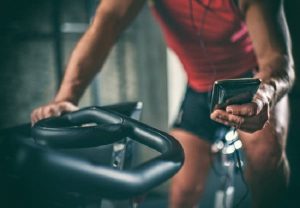Really?
Even this will not be enough to overcome the incompetence of your doctors and stroke hospital. Music therapy for stroke has been out there for years. It is YOUR RESPONSIBILITY to bring your stroke hospital up-to-date. I would suggest firing all the staff and the board of directors. Such incompetence can't be tolerated.
43 posts on music therapy. Back to Oct. 2014
74 posts on music Back to March 2011
Music therapy helps stroke patients recover faster
For the study, they studied the
experience of 177 patients who took part in 675 Neurologic Music Therapy
(NMT) sessions over a two-year period.
Washington D.C. [USA]: New research has shed a positive
light on music therapy sessions for stroke patients which helps them to
improve function by regulating mood, improving concentration, and
promoting brain changes.
The study was led by Dr. Alex Street, of Anglia Ruskin University (ARU), and was carried out on a 26-bed stroke and rehabilitation unit at Addenbrooke’s hospital in Cambridge.
For the study, they studied the experience of 177 patients who took part in 675 Neurologic Music Therapy (NMT) sessions over a two-year period.
The researchers investigated and published the results in the journal Topics in Stroke Rehabilitation.

In addition to playing physical instruments (keyboard, drums and hand-held percussion), iPads featuring touchscreen instruments were used in the trial to help patients with hand rehabilitation, through improving finger dexterity, and cognitive training.
NMT sessions were run alongside existing stroke rehabilitation treatment, including physiotherapy, occupational therapy, speech therapy, and clinical psychology.
After the experiment, the average response from the participants was that NMT was “helpful” or “very helpful”.
The participants who completed mood scale related questionnaires, there was a reduction in “sad” and an increase in “happy” responses immediately following a session.

Dr. Alex Street, the Senior Research Fellow within the Cambridge Institute for Music Therapy Research at Anglia Ruskin University (ARU), said: “Our study found that Neurologic Music Therapy was received enthusiastically by patients, their relatives, and staff.
Speech and language therapists also observed a positive impact on patient arousal and engagement and reported that it may help patients overcome low mood and fatigue. (ANI)
The study was led by Dr. Alex Street, of Anglia Ruskin University (ARU), and was carried out on a 26-bed stroke and rehabilitation unit at Addenbrooke’s hospital in Cambridge.
For the study, they studied the experience of 177 patients who took part in 675 Neurologic Music Therapy (NMT) sessions over a two-year period.
The researchers investigated and published the results in the journal Topics in Stroke Rehabilitation.

In addition to playing physical instruments (keyboard, drums and hand-held percussion), iPads featuring touchscreen instruments were used in the trial to help patients with hand rehabilitation, through improving finger dexterity, and cognitive training.
NMT sessions were run alongside existing stroke rehabilitation treatment, including physiotherapy, occupational therapy, speech therapy, and clinical psychology.
After the experiment, the average response from the participants was that NMT was “helpful” or “very helpful”.
The participants who completed mood scale related questionnaires, there was a reduction in “sad” and an increase in “happy” responses immediately following a session.

Dr. Alex Street, the Senior Research Fellow within the Cambridge Institute for Music Therapy Research at Anglia Ruskin University (ARU), said: “Our study found that Neurologic Music Therapy was received enthusiastically by patients, their relatives, and staff.
Speech and language therapists also observed a positive impact on patient arousal and engagement and reported that it may help patients overcome low mood and fatigue. (ANI)
No comments:
Post a Comment